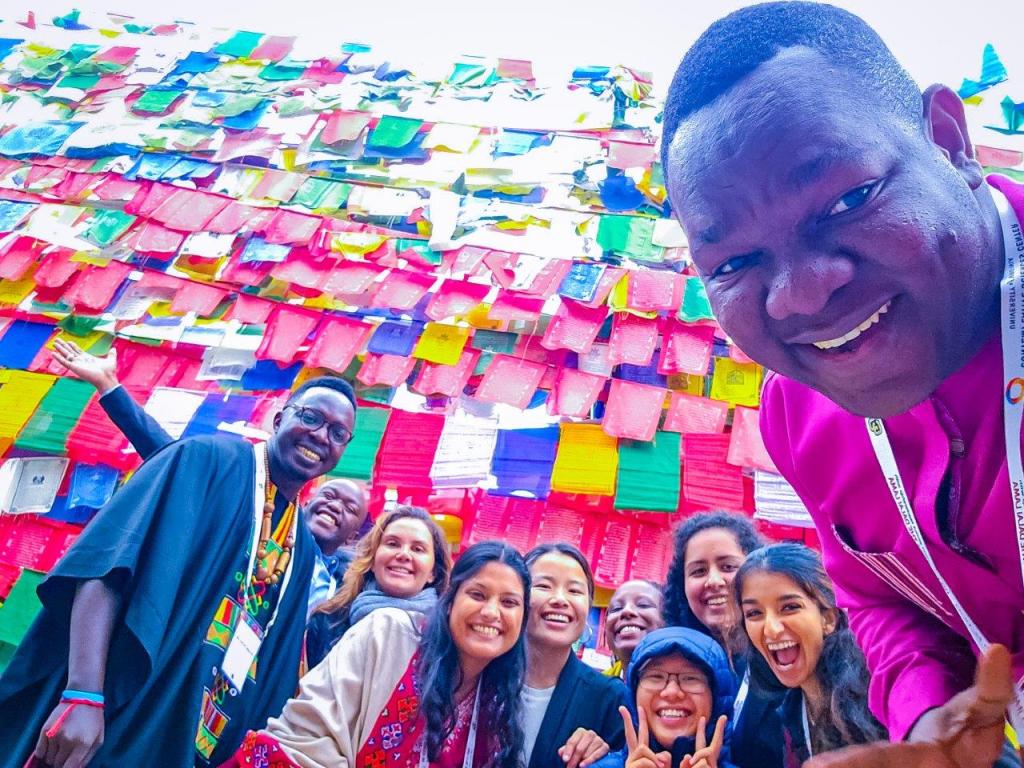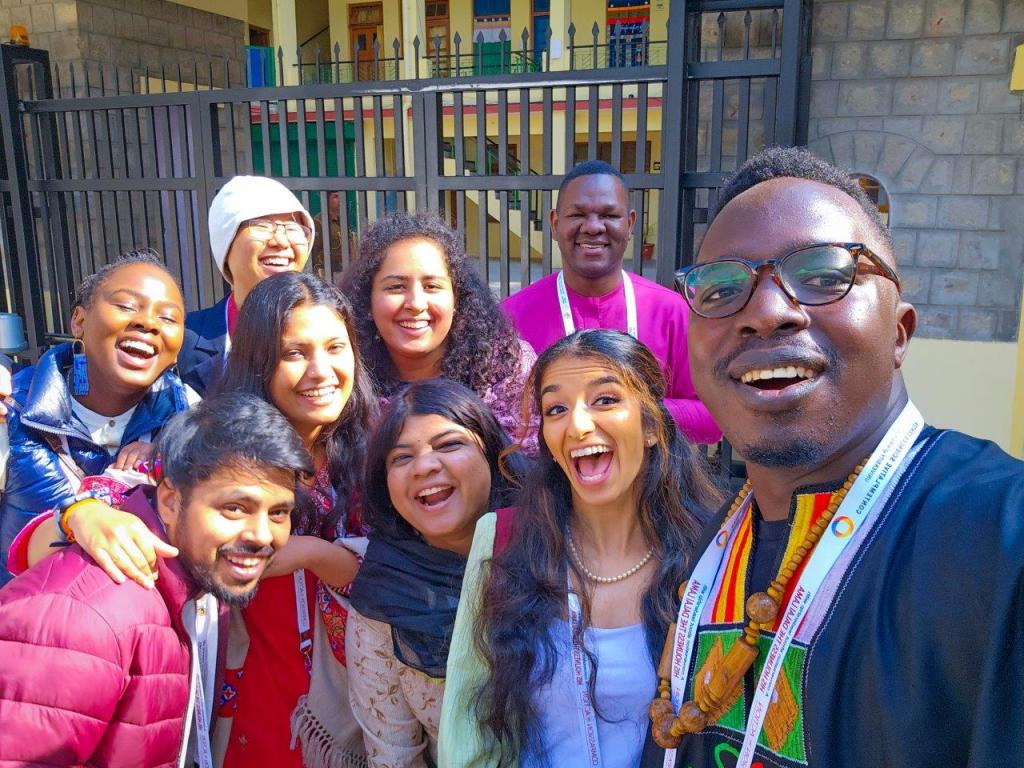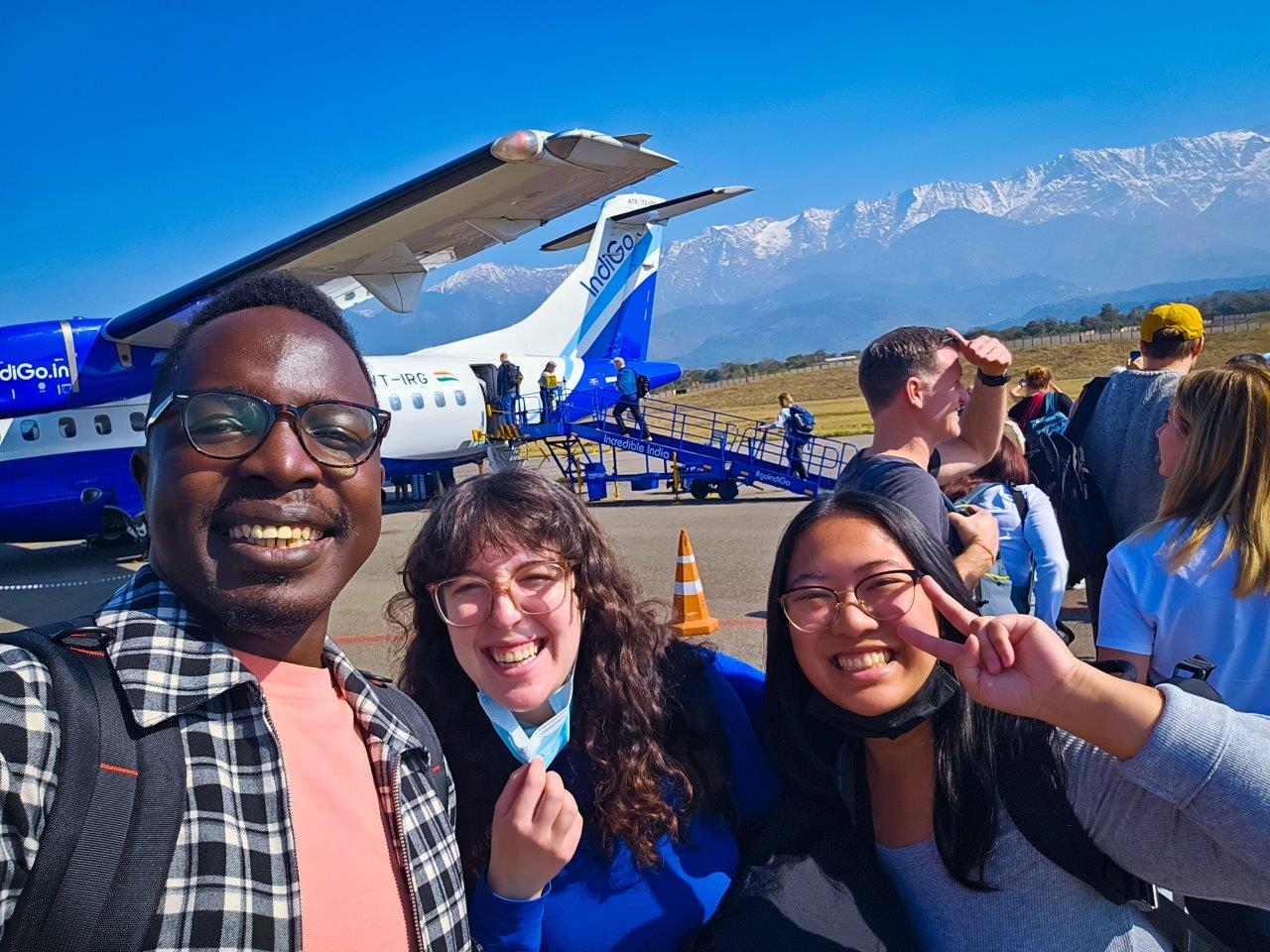During his recent visit to India and Dharamsala with his fellow Dalai Lama Fellows, Ogweno Stephen had the privilege of engaging with elders, monks, and Tibetans, culminating in a conversation with His Holiness the 14th Dalai Lama. From these interactions, several key messages emerged, spanning various aspects of life and society.

- Questioning the Notion of Enoughness: Reflecting on a deep question about “how much is enough,” Ogweno contemplated the importance of contentment and moderation in life.
- Living Alone vs. Living in Community: A monk highlighted the societal challenge of individuals not knowing how to live alone or in community, emphasizing the need for a balance between self-reflection and communal living.
- The Middle Way of Life: Ogweno gleaned wisdom from the concept of the middle way, recognizing the value of balance between extremes of luxury and poverty to attain a fulfilling life.
- Finding Solutions Amidst Suffering: Despite suffering, happiness allows individuals to perceive solutions and find joy amidst their struggles, as observed by a monk during the trip.
- Transforming Discomfort into Challenge: Life inevitably brings discomfort, which can be transformed into either suffering or a challenge to be overcome, highlighting the power of perspective in facing adversity.
- Internal Conversations and Perception: Ogweno realized that internal dialogues shape perceptions, influencing whether experiences are perceived as suffering or as opportunities for growth.
- Translating Inner Work into Action: Inner work should manifest in tangible actions, enabling individuals to express compassion and contribute positively to the world.
- Authenticity in Compassionate Action: Compassion must be expressed through meaningful action to be genuine, underscoring the importance of aligning values with behavior.
- Detachment from External Situations: Avoiding fixation on external circumstances allows individuals to maintain equanimity and focus on their inner convictions and values.
- Conviction in Noble Pursuits: Having a deep sense of conviction in the nobility of one’s endeavors strengthens commitment and resilience in pursuing meaningful goals and aspirations.
- Contentment without Attachment: Ogweno gained insights into the concept of contentment without attachment, learning that true contentment lies in doing the work without concern for immediate results, as articulated by one monk during the trip.
- Active Engagement over Detachment: Lessons from the legend of Shanti Deva emphasized the importance of active engagement rather than detachment or “zenning out,” highlighting the value of participating fully in life’s experiences and challenges.
- Interdependence vs. Interbeing: Exploring the concept of interdependence versus interbeing, Ogweno learned about the interconnectedness of all things and the profound implications of recognizing this interconnected nature for personal growth and societal harmony.
- Transformation through Reception: Understanding that transformation occurs through reception, Ogweno discovered the significance of openness and receptivity to new experiences, ideas, and perspectives as catalysts for personal and collective evolution.
- Individual vs. Group Identity: In conversations on individual versus group identity, there was a reemphasis on the importance of nurturing individual identity while recognizing the value of collective belonging and shared humanity.
- Facing Challenges for Healing: Ogweno embraced the concept of “we feel it to heal it,” acknowledging the importance of confronting challenges and traumas head-on to facilitate healing and growth.
- Remembering Our Own Goodness: Amidst negativity and challenges, Ogweno internalized the lesson of remembering one’s own goodness, fostering self-compassion and resilience in the face of adversity.
- Return to the Basics of Humanity: His Holiness the 14th Dalai Lama emphasized the importance of returning to the basics of humanity, advocating for unity and oneness as fundamental principles for resolving conflicts and promoting universal love and compassion.
- Joy in Service and Purpose: Dalai Lama conveyed the message that true happiness is found in service, encouraging individuals to make service a way of life as it brings fulfillment and purpose.
- Sustaining Motivation through Service: Ogweno learned that the sustenance of motivation stems from the joy found in service, underscoring the intrinsic rewards of contributing to the well-being of others.

